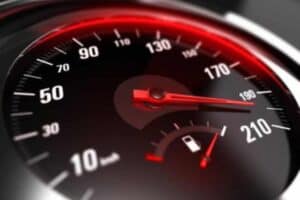German Transport Minister said a self imposed speed limit already exists as drivers are not keen to deplete their car's batteries.

The German government has resisted calls, once again, from introducing a blanket speed limit across its autobahn network, this time as a result of current factors putting an effective brake on high speed travel.
Not happening
Back in 2019, the country’s centre-left Green Party stated that a 130 km/h limit should be imposed on all derestricted sections of autobahns as a way of not only reducing emissions, but also fatalities.
Voting on the matter in the German Bundestag saw the proposal rejected, with then Transport Minister, Andreas Scheuer, remarking at a prior sitting earlier that year, “whoever wants to drive 120 can drive 120, and those who want to go faster can do that too. Why this constant micromanagement?”
‘Speed limit’ already in place
In the latest dispute regarding a speed limit, Volker Wissing, who replaced Scheuer as transport head at the end of 2021, said the ongoing energy crisis in Europe as a result of Russia’s invasion of Ukraine had put a self-imposed ban on high-speed driving anyway as a result of fuel costs.
ALSO READ: German government puts brakes on autobahn speed limits
“The pace is the personal responsibility of the citizens, as long as others are not endangered. The state should hold back here. There is no need for a speed limit in Germany,” Automobilwoche quoted him as saying.
At the same time, Wissing stated that Germany’s high uptake of electric vehicles has also nullified the need for a speed limit as “[these drivers] won’t drive as fast because they want to save their batteries”.
More roads needed
Further dispelling the idea of a speed limit, Wissing said the effects of the invasion and EV uptake will eventually put constraints on the country’s network and require the building of more highways if Germany wants to avoid an economic slowdown.
Hinting that speed limits would result in a slowdown in light of 3.7-billion tons of goods having passed over the network last year, Wissing said it cannot afford a similar situation to what is currently facing the country’s railways.
“If we don’t want to experience similar conditions on the road as with the rails, we urgently need to take countermeasures here,” he said.
“In 2023 there will be another 50 million tons more. The railways cannot do this alone. Even if not everyone likes it: There will be more traffic on German roads and we have to deal with it. Otherwise the economy will soon come to a standstill and we will lose jobs.”
Additional information from carscoops.com.
Support Local Journalism
Add The Citizen as a Preferred Source on Google and follow us on Google News to see more of our trusted reporting in Google News and Top Stories.






